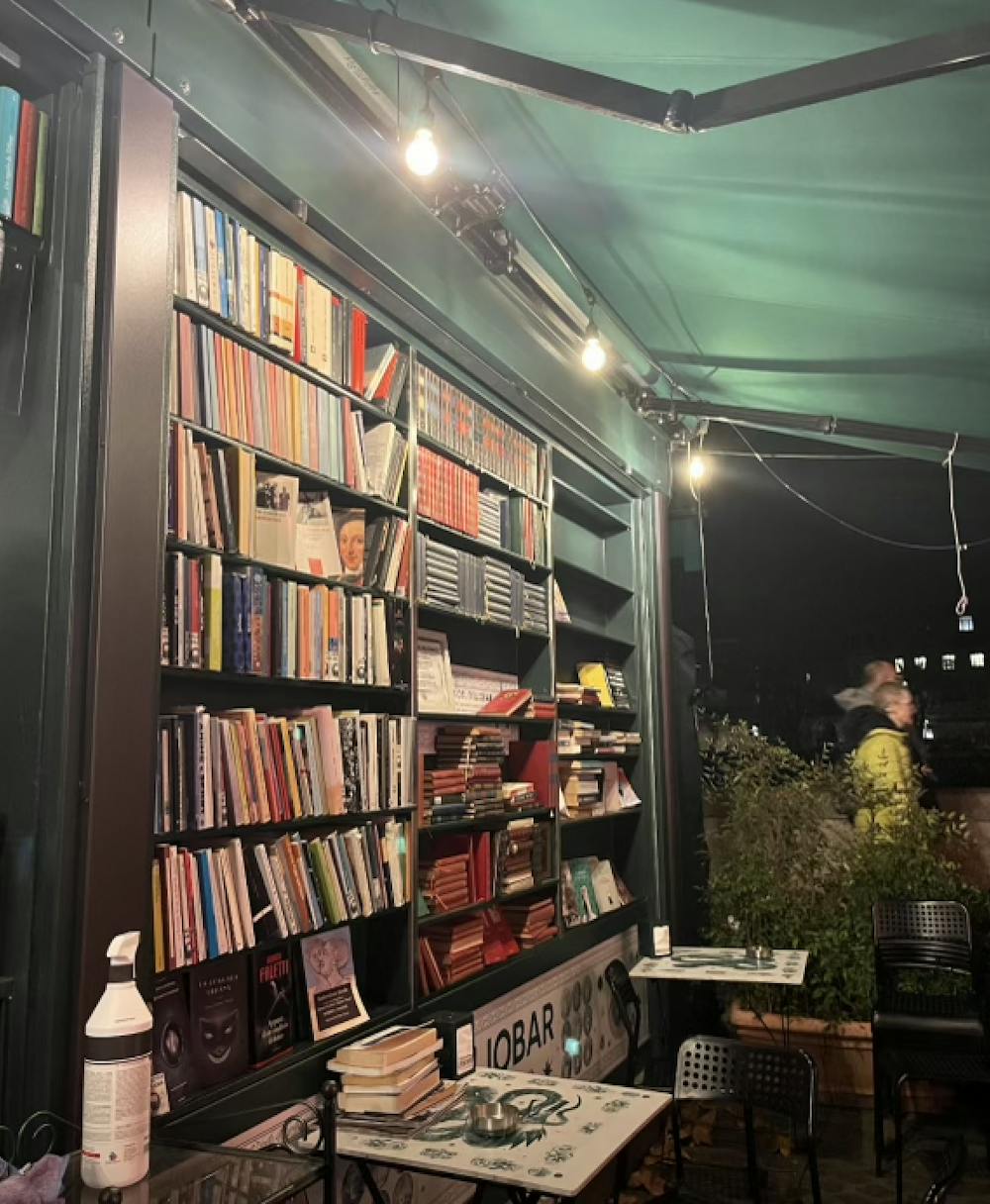Shakespeare once wrote, “Poetry is like a boundless sea / wherein the soul doth sail.”
But actually, he really didn’t … I did, just now. Maybe some of you literature nerds caught this, but others of you were convinced. You were convinced that Shakespeare really did write something about poetry being a sea, and since he wrote it, then it must be “good” poetry.
I’m here to tell you that there is no such thing as “good” poetry.
As an English major, I’ve been force-fed Elliot and Dante and Dickinson. I’ve painfully swallowed Virgil and Wadsworth and Plath. And even with those poets whom I find slightly tolerable (Poe and Angelou), I still cannot resist the occasional urge to roll my eyes at them.
Shakespeare once wrote, “I am a man / More sinned against than sinning.”
He really did.
When I first came across this line in one of my English classes, I nodded my head. I thought to myself, “maybe poetry isn’t so bad after all.” I went home, and I tried to write a line of poetry myself.
I wrote, “I arrive at the year of the cat, still the same then mouse. / Small, soft, always spinning still / on callouses cautiously crafted for that very pirouette.”
I nodded my head. I thought to myself “maybe I’m not such a bad poet after all.” I submitted my poetry to “The Juggler,” Notre Dame’s student-led magazine for creative publications. And then I was met with this email: “We regret to inform you that we cannot accept your poetry at this time.”
I am not a very good poet, or so I’m told. I’ve been told that I’m a good writer and a mediocre piano player and an average singer at best. But I’ve never once been told that I write “good” poetry.
Walt Whitman once wrote, “I celebrate myself, / And what I assume you shall assume, / For every atom belonging to me as good belongs to you.”
He really did. His poetry was so groundbreaking, so unorthodox, so earth-shattering that it is still being taught in high schools across America, where teachers display his weird sentences with punctuation that would make a thesaurus cry and say, “Wow, this is good poetry. This is excellent poetry, actually.”
Walt Whitman once wrote, “I sing the beet, red as the blush of dawn / … proudly unfurled, your Flesh a crimson hue.”
But actually, he really didn’t … I did, just now. If I submitted this to my professors, I would probably get a big fat F. Maybe Walt Whitman got bad grades too, and yet, his poetry is now deemed “excellent.” My poetry is almost always met with: “We regret to inform you that we cannot accept your poetry at this time.”
I came across a Tiktok the other day in which a boy named Rocco Frattasio read aloud, “Jack and I have this habit of drinking too many cups of coffee sometimes. I just love coffee. Jack says yeah no kidding, there are other things to love besides coffee.” I nodded my head.
I thought to myself, “Hey, Rocco, that’s good poetry.” And all the 40,000 people in the comments said, “That’s good poetry, Rocco.” I sent it to my sister. She pursed her lips. “I don’t like poetry," she said. "Poetry is stupid.”
She said what I’ve been thinking since before I even knew what thoughts were: POETRY IS STUPID! Who decides what a “good” poem is, anyway? When Homer wrote: “Nobody — that’s my name. / Nobody — so my mother and father call me, all my friends,” all the Greeks nodded their heads and said, “Hey, Homer, that’s good poetry.” English teachers wearing floor-length skirts and dangly feather earrings later agreed, and so now sixteen-year-olds everywhere have to sparknote “The Odyssey” so that they can get a passing grade on their world literature quizzes.
I wrote, “It is raining outside my parents’ bedroom / I hear no storm, only their laughter / Thunderous, unbridled / I could not bottle it if I tried” and someone in the office of an unnamed publication shook their head and said, “Hey, Gracie, that’s terrible poetry. I mean seriously, this crap is really stupid.”
It seems that even those who reject me can agree on poetry’s stupidity.
But maybe that’s the whole point. Maybe poetry is stupid, but who said everything always had to be smart? I’ve spent my whole life running from stupid and towards smart and my legs are killing me. We’re all so afraid of being stupid, whether we like to admit it or not. Perhaps some stupidity is good for us. Maybe a bit of rejection, a loosening of expectations and a chance to laugh at our own vulnerability is necessary.
Gracie Eppler once wrote: “Poetry is like a boundless sea / wherein the soul doth DROWN.”
She really did. Maybe this made you nod your head. Maybe you thought to yourself, “that’s good poetry.”
Or maybe you just thought it was stupid.
Gracie Eppler is a senior business analytics and English major from St. Louis, MO. Her three top three things ever to exist are '70’s music, Nutella and Smith Studio 3, where she can be found dancing. You can reach her at geppler@nd.edu.










